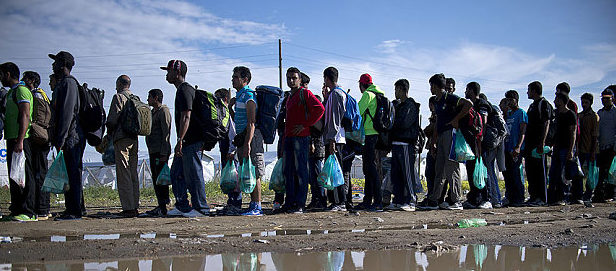On 25 February 2022, the Administrative Court of Braunschweig gave its decision in a case concerning a Dublin return to Croatia. The applicants were an Iranian mother and her 12-year-old child who was severely disabled. They applied for asylum in Germany but due to their previous application in Croatia, the applicants were deemed inadmissible and presented with removal orders to Croatia. The applicants applied to the Court for interim measures, suspensive effect and a rejection of the transfer decision.
The Court referred to Article 3(2) of the Dublin III Regulation, which provides for instances where there are substantial grounds for believing that the asylum procedure and reception conditions in the primarily designated Member State have systemic flaws which risk applicants being exposed to inhuman or degrading treatment within the meaning of Article 4 of the Charter and Article 3 ECHR. It reasoned that such systemic deficiencies in the Croatian asylum system are supported by the violent expulsions of asylum applicants to Serbia or Bosnia-Herzegovina and that without individual assurances from the Croatian authorities it is not presumed that applicants returned to Croatia under the Dublin procedure will not become victim to chain removals and that their right to asylum will be violated. It continued that there were numerous reports of violent attacks and denials to the right to asylum towards asylum seekers who had spent several days inland and had been expelled from other EU countries and that there was no reliable evidence that Dublin returnees from Germany were given preferential treatment over other asylum applicants. Furthermore, the Court found it relevant that when the applicants were in Croatia before, the first applicant had been beaten by Croatian police officers, her Iranian papers were burned and they did not receive more consideration as to their vulnerability, which could be the case again on return. Additionally, it mentioned that as the first applicant was illiterate and had permanent responsibility of her severely disabled son, she would have no possibility to defend herself against arbitrary ill-treatment at the hands of the Croatian authorities.
The Court lastly determined that if individual guarantees are obtained from Croatian authorities ensuring adequate reception conditions and asylum procedures for the applicants it would be difficult to check on their implementation after the applicant’s return to Croatia. It noted that this is problematic when a vulnerable person such as the second applicant is concerned and that therefore a transfer should not be decided as permissible even in this case. The Court therefore held the application for suspensive effect admissible and well founded and concluded that the removal order to Croatia was unlawful at the relevant time of the decision.
Based on an unofficial translation within the EWLU team.

